The Language of God
 |
| Francis S. Collins's The Language of God |
The main thrust of Collins's book is that belief in Darwin, and in science in general, need not imperil one's faith in God.
Collins himself began his adult life as an atheist who was nonetheless bestirred to question his own lack of belief. He responded to two aspects of his personal inner experience with a certainty that there must be a God and a commitment to evangelical Protestantism.
The first aspect of his personal experience that he couldn't explain from the point of view of a skeptical atheist was his realization that there seems to be a Moral Law common to all human beings in all places and times, from which we each derive a basic, universal notion of right and wrong. According to this Moral Law, acts of altruism are given the highest ethical value, everywhere in the world, even when they are done in secret and can stimulate no possible reciprocity. Evolution theory can't explain that.
Then there is the universality of human wonder at the world and about its Creator: a spiritual hunger which, again, science can't satisfy or even explain. Collins says he found a sense of, yes, joy in the intense longing itself — as did the well-known Christian explicator, C.S. Lewis, in Surprised by Joy. Collins builds on Lewis this way (p. 35):
He [Lewis] describes the experience as "an unsatisfied desire which is itself more desirable than any other satisfaction." I can recall clearly some of those moments in my own life, where this poignant sense of longing, falling somewhere between pleasure and grief, caught me by surprise and caused me to wonder from whence came such strong emotion, and how might such an experience be recovered.These two common threads of human experience, Moral Law and spiritual hunger, neither of which science can explain, convinced Collins that God is real. Yet Collins always wanted to be a scientist and to do science in the way it is meant to be done: to observe phenomena in the material world and then to search for the wholly naturalistic theories that will explain them. Such investigations can yield insights into, among other things, how to cure diseases and alleviate suffering.
Science alone can explain a lot, says Collins, but there are events it can shed little light on, such as whatever led up to the Big Bang, the "singularity" approximately 14 billion years ago which most scientists agree represented the origin of the universe. We may also never know for sure how life on Earth began, some 4 billion years ago.
But most of what science has at one time either gotten wrong or been wholly unable to deal with has historically been filled in or corrected by later science, Collins points out. Early astronomers thought the sun moved around the Earth; Copernicus, Galileo, and Kepler proved the opposite. Early naturalists assumed living things were too complex not to have been directly created by God; Darwin showed a way for nature, acting alone, to build up the biosphere's complexity gradually, over eons of time. Human intuition has it that matter and energy are two different things; Einstein showed they are one.
Since the dawn of modern scientific inquiry, remarks Collins, every time we humans have found gaps in our scientific uncerstanding of the material world, we have appealed to a "God of the gaps" to fill them. Nowadays we encounter a gap in explaining life's origins, so some believers in God have proposed "the appearance of DNA and RNA as a possible opportunity for divine creative action" (p. 92). Collins counsels caution here: "Faith that places God in the gaps of current understanding about the natural world may be headed for crisis if advances in science subsequently fill those gaps" (p. 93).
It might be argued that Collins himself inserts God in a "gap" in our knowledge when he ascribes our altruism and spiritual capacity to divine influence, beyond science's reckoning. His premise here is clearly that God's work within us is not open to empirical inquiry. Hence, these aspects of our inner experience are not scientific "gaps" at all, any more than (say) our uniquely human quality of self-awareness can be fully "explained" as a product of natural evolutionary forces.
Whatever the soul may be, Collins suggests, it can never be a legitimate subject of scientific investigation. Ergo, our altruism and spiritual capacity, as twin aspects of soul, cannot possibly represent explanatory "gaps" which science could one day close. We who love science's logical consistency remain free to seek God, without calling him a "God of the gaps."
Collins himself is trying (I think successfully) to fill a gap: the one between creationists and scientific/academic atheists.
Creationists believe that the stories of creation in Genesis (there are two of them) are more or less literally true. Young Earth Creationists believe in a strict literal interpretation of Genesis which informs them that God made all things in heaven and earth, including humankind, over a six-day period. Extrapolating from information in the Bible, the famous Bishop Ussher dated the inception of the world at 4004 B.C.
Among the leading scientific and academic atheists whom Collins cites are the Darwinian biologist Richard Dawkins, the philosopher Daniel Dennett, and the entomologist/sociobiologist Edward O. Wilson. Dawkins, a leading exponent of scientific atheism, has asserted in articles like "Is Science a Religion?" and in books like The Selfish Gene, The Blind Watchmaker, Climbing Mount Improbable, River out of Eden, and A Devil's Chaplain such things as (see pp. 163ff.; p. 195):
The final decisive edge enjoyed by scientific naturalism will come from its capacity to explain traditional religion, its chief competition, as a wholly material phenomenon. Theology is not likely to survive as an independent intellectual discipline.
It is fashionable to wax apocalyptic about the threat to humanity posed by the AIDS virus, 'mad cow' disease, and many others, but I think a case can be made that faith is one of the world's great evils, comparable to the smallpox virus but harder to eradicate.
[Dawkins's definition of faith is] blind trust, in the absence of evidence, even in the teeth of evidence.
The universe we observe has precisely those properties we should expect if there is, at bottom, no design, no purpose, no evil, and no good, nothing but blind pitiless indifference.Collins opposes both worldviews. Young Earth Creationism simply nullifies scientific inquiry outright and forces young people who don't want to leave their parents' faith into "effectively committing intellectual suicide" (p. 178). Scientific atheism à la Dawkins gets tangled up in inconsistencies such as holding that there is no good or evil, yet claiming that "faith is one of the world's great evils."
A special type of creationism which Collins takes on all by itself is Intelligent Design theory. The brainchild of Phillip Johnson, a lawyer, along with scientists Michael Behe, William Dembski, and numerous others, ID is the notion that many structures in Earth's life forms are "irreducibly complex." For instance, says Behe, the flagellum of a bacterium is something like an "outboard motor." Used for propulsion, it consists of many interlinked proteins. Each protein serves a particular function; indeed, one of them acts as a sort of "universal joint" such as you might find in the axle of a car.
A protein is a long chain of molecular building blocks, the amino acids. Genes are sequences of DNA, hundreds or thousands of base pairs long, that specify or "code for" these chains of amino acids and thereby call forth the production by living cells of specific proteins. There is presumably a specific gene in flagellar bacteria that codes for the "universal joint" protein.
According to Collins (p. 185), Behe observes that there are about 30 proteins in a bacterial flagellum. That suggests, of course, that there are basically the same number of genes in the bacteria's genome to code for the flagellar proteins. Behe claims that this assemblage of thirty or so genes could not have arisen in step-by-step fashion with each gene individually ratified by Darwinian natural selection, because no one of the thirty proteins coded for by the genes has any utility in itself. Only when you put all thirty proteins together do you have a working flagellum.
Behe and other proponents of ID make similar arguments about, among other things, the eye and the dozen or more proteins that compose the highly effective "human blood-clotting cascade." These and other structures/functions found in living species are said by IDers to exhibit irreducible complexity and thereby to disprove the gradual, step-by-step nature of Darwinian evolution via natural selection. Accordingly, there must instead have been an Intelligent Designer who fashioned these structures intentionally.
Yet in every case, Collins shows, there is good reason to believe that Intelligent Design theory is simply incorrect about these elaborate structures being irreducibly complex. For instance, says Collins (p. 192), " ... comparison of protein sequences from multiple [species of] bacteria has demonstrated that several components of the flagellum are related to an entirely different apparatus used by certain bacteria to inject toxins into other bacteria that they are attacking."
Genetically and evolutionarily, this "type III secretory apparatus," which is less complex than a flagellum, is a way station to the latter. And there may be an as-yet-undiscovered evolutionary stepping stone to the former ... and so on, and so on, and so on, until the whole notion of irreducible complexity gives up the ghost.
Furthermore, contrary to Intelligent Design's assumptions, says Collins, it is actually rather easy, over the span of evolutionary time, to alter the influence a given gene exerts by way of the protein for which it codes. If you are Mother Nature, all you have to do is introduce into a particular genome a copy of an existing gene, call it A. A continues to perform its original mission, while A', the copy, is free to mutate and thereby code for a brand new protein. Get just the right bunch of these putatively "useless" new proteins together — I'm reading between Collins's lines here, by the way — and a "type III secretory apparatus" can become a flagellum. And, says Collins, gene duplication and subsequent mutation happen quite a lot in nature, down through countless generations.
Which by no means implies there's no God. All it really does to harm faith is to require that certain Bible passages not be interpreted literally. Instead, says Collins, people of faith should be open to the idea that a God outside time who made the laws of the universe foreknew what those laws would produce via evolution: moral creatures whose spiritual hunger would bring them one day into personal communion with Him.
P.S. Here is an excellent New York Times review of several recent books, including Collins's, on all sides of the subject of whether belief in God makes sense for a scientific Darwinist.






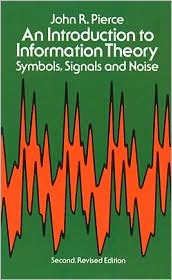

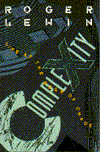

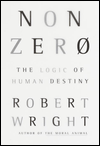

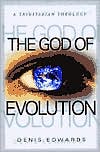

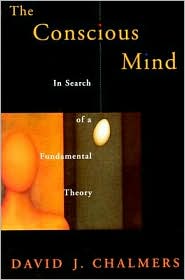
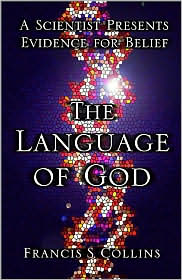


0 Comments:
Post a Comment
<< Home